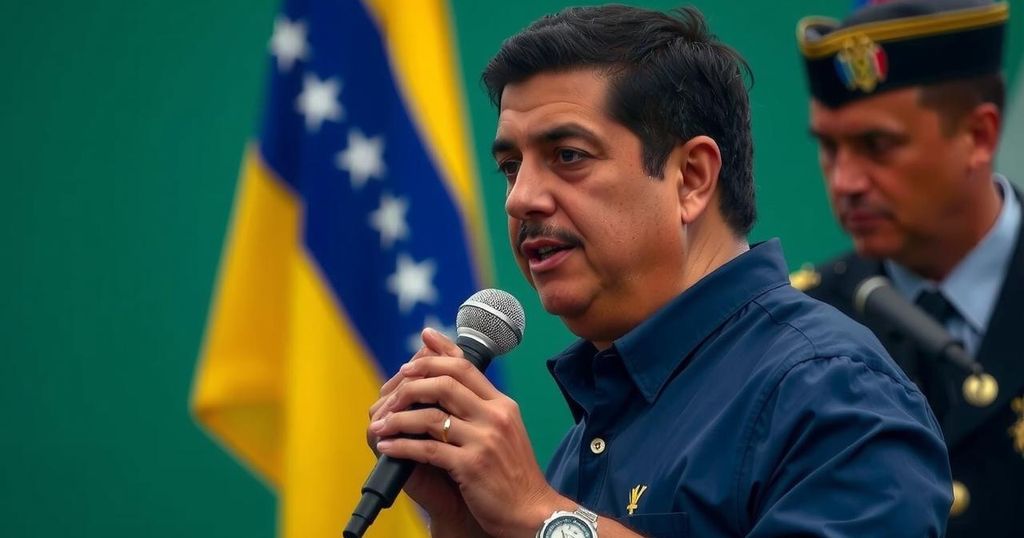U.S. Imposes Sanctions on Maduro’s Allies Following Election Controversy

The U.S. has sanctioned 21 allies of Venezuelan President Nicolás Maduro over alleged election-related repression. The sanctions include significant government officials and follow the Biden administration’s recognition of Edmundo González as president-elect. The overall impact of these measures remains uncertain, as Maduro’s supporters retain substantial power. Additionally, Venezuelan lawmakers are debating a bill targeting economic sanctions as crimes against humanity.
The United States has recently imposed sanctions on 21 additional associates of Venezuelan President Nicolás Maduro. This move comes in response to the repression associated with the contested presidential election that occurred in July. Among the sanctioned individuals are high-ranking security and cabinet officials, including the head of the corrections agency and the director of an intelligence service. This action adds to the extensive list of Venezuelans already under U.S. sanctions, which features judges, ministers, and prosecutors involved in human rights violations and electoral irregularities.
Following the election, which Maduro claimed to have won, the Biden administration has recognized Edmundo González, an opposition candidate, as the legitimate president of Venezuela. González, who had previously represented the main opposition parties, fled Venezuela for Spain after facing an arrest warrant related to allegations of manipulating vote results. The sanctions targeting Maduro’s allies aim to hold accountable those contributing to the oppressive political climate in Venezuela. However, the actual impact of these sanctions remains uncertain, as many of Maduro’s loyalists continue to wield significant power within the government.
In a parallel development, Venezuelan lawmakers are debating legislation that would classify economic sanctions as crimes against humanity. This proposed law would also permit prosecution for individuals who express support for such sanctions, indicating the government’s severe stance against external pressure. The U.S. previously sanctioned 16 of Maduro’s allies in September for similar repression and obstruction of the electoral process, emphasizing a continued commitment to addressing human rights abuses in the region.
The political climate in Venezuela has been increasingly tense following the disputed presidential election held in July. President Nicolás Maduro’s administration has faced accusations of electoral fraud and human rights abuses, inciting international condemnation. The U.S. government’s sanctions serve as a mechanism to hold accountable those perceived to be complicit in the repressive actions of the Maduro regime. Furthermore, the recognition of Edmundo González by the Biden administration reflects a shift in U.S. foreign policy towards supporting opposition figures and emphasizing democratic governance in Venezuela.
In summary, the U.S. has escalated its response to the Venezuelan government’s alleged electoral abuses by sanctioning an additional 21 officials associated with Maduro. These measures are part of a broader strategy to encourage accountability and support opposition leadership. The ongoing legislative discussions in Venezuela regarding sanctions further illustrate the profound tensions between the government and the international community regarding human rights and democratic integrity.
Original Source: www.wlrn.org







